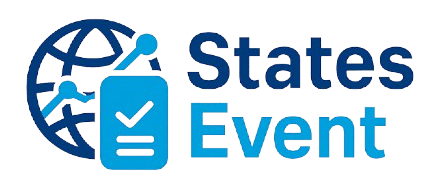This Bank Secrecy Act (BSA) training program will explain how to train your front line staff to ask BSA questions. It will cover Currency Transaction Reports (CTR), Monetary Instrument Log, Suspicious Activity Reports (SAR) scenarios and questions, and much more.
WHY SHOULD YOU ATTEND?
The front line staff of any financial institution is the first line of defence for BSA compliance. Therefore, an ill-trained front line staff could lead to the collapse of an institution or the imposing of enforcement actions from the regulators. A strong and well-educated front line staff will help develop a strong back office BSA department for your institution. Often, the front line staff does not know why they are asking BSA questions or what the focus of BSA truly is. This webinar will not only give your front line staff viable scenarios and ways to respond during the customer question and answer process, but this training will also explain why your staff is asking the questions in the first place. Another valuable section of this webinar will teach the front line staff when questions need to be asked. Most staff are familiar with how and why they ask questions related to CTRs and the Monetary Instrument Log, but they need to be able to look at a customer's account history so as to understand how to ask questions related to the SAR process.
LEARNING OBJECTIVES
- Responsibilities of frontline staff
- Customer service vs. bank preservation
- CTR, SAR, and Monetary Instrument Log scenarios and questions
- Updating customer information
- CTR scenarios and questions
- MIL scenarios and questions
- SAR scenarios and questions
- Why should I care (a frontline perspective)
- Building a strong relationship between the front line staff and back office staff
- Developing a culture of compliance in front line staff
WHO WILL BENEFIT?
- District Bank/Credit Union/Financial Institution Managers
- Branch Managers
- Teller Supervisors
- Compliance Managers
- Front Line Staff
- Risk Officers
- Operational Managers
- Front line bank staff
- On-boarding staff
- Customer relations staff
- Back office staff
- BSA Officer
- Compliance Officers
- Suspicious activity investigators and analysts
The front line staff of any financial institution is the first line of defence for BSA compliance. Therefore, an ill-trained front line staff could lead to the collapse of an institution or the imposing of enforcement actions from the regulators. A strong and well-educated front line staff will help develop a strong back office BSA department for your institution. Often, the front line staff does not know why they are asking BSA questions or what the focus of BSA truly is. This webinar will not only give your front line staff viable scenarios and ways to respond during the customer question and answer process, but this training will also explain why your staff is asking the questions in the first place. Another valuable section of this webinar will teach the front line staff when questions need to be asked. Most staff are familiar with how and why they ask questions related to CTRs and the Monetary Instrument Log, but they need to be able to look at a customer's account history so as to understand how to ask questions related to the SAR process.
- Responsibilities of frontline staff
- Customer service vs. bank preservation
- CTR, SAR, and Monetary Instrument Log scenarios and questions
- Updating customer information
- CTR scenarios and questions
- MIL scenarios and questions
- SAR scenarios and questions
- Why should I care (a frontline perspective)
- Building a strong relationship between the front line staff and back office staff
- Developing a culture of compliance in front line staff
- District Bank/Credit Union/Financial Institution Managers
- Branch Managers
- Teller Supervisors
- Compliance Managers
- Front Line Staff
- Risk Officers
- Operational Managers
- Front line bank staff
- On-boarding staff
- Customer relations staff
- Back office staff
- BSA Officer
- Compliance Officers
- Suspicious activity investigators and analysts
Speaker Profile
 Thomas Nollner
Thomas Nollner
Thomas E Nollner has more than 35 years of experience in financial institution supervision and consulting. Mr. Nollner spent 30 years as a National Bank Examiner for the Comptroller of the Currency where he was a safety and soundness examiner and a compliance examiner. As a safety and soundness examiner he examined national banks for capital adequacy, asset quality, management issues, earnings concerns, and liquidity funding. As a compliance examiner, he examined national banks for compliance with consumer laws and regulations such as the Truth-in-Lending Act, the Real Estate Settlement Procedures Act, the Flood Disaster Protection Act, the Community Reinvestment …
Upcoming Webinars


Excel Power Skills: Master Functions, Formulas, and Macros …
